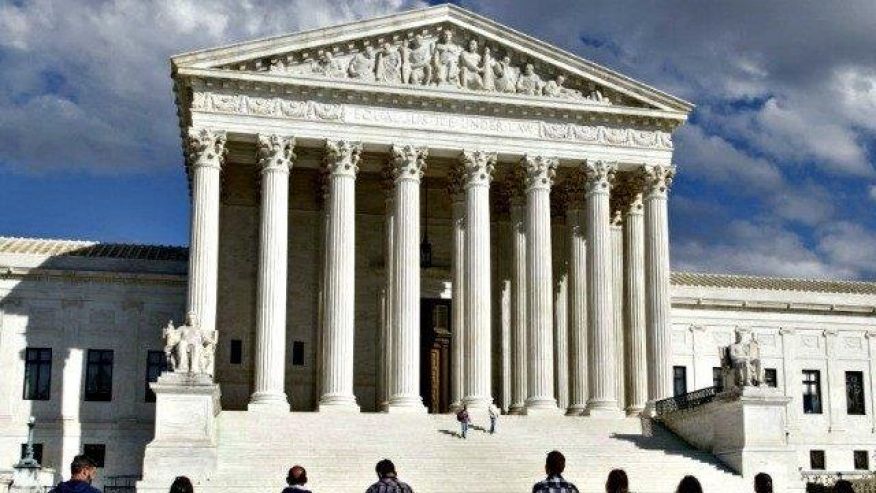States’ rights advocates eye convention to bypass Congress, amend Constitution

What if a supermajority of states could override a federal law or Supreme Court ruling?
That’s just one idea being proposed by advocates of a “convention of states” to amend the U.S. Constitution.
"The American people are mad and they’re looking for a way to say, ‘No more,’” said Brooke Rollins, president and CEO of the Texas Public Policy Foundation, a conservative think tank. “Our founders, in their brilliance, gave us a tool to do that. And it’s Article V.”
Article V of the Constitution allows a minimum of two-thirds of the states to call for a convention to propose amendments, in turn going around Congress.
The push to do so has proceeded in fits and starts over the last several years, driven by a desire for states to debate a range of constitutional changes dealing with everything from campaign finance reform to balanced budgets. So far, six states have signed on — Alabama, Alaska, Georgia, Florida, Indiana and Tennessee. Indiana was the latest to sign on, approving a resolution endorsing the effort earlier this month.
But organizers would need another 28 to bring their plan to fruition, and call the convention. If they reach that level of support, states would be entering uncharted territory.
“It has never happened before in the history of the United States,” said Robert Schapiro, dean of Emory University School of Law.
In an election cycle that has defied conventional wisdom, though, supporters of a convention of states believe right now may be the very best time to try something different.
“The mood of the public is tired of business as usual,” said Buzz Brockway, a Republican state representative who sponsored Georgia’s convention of states resolution.
Brockway told Fox News he believes such a convention could achieve consensus on such issues as campaign finance reform, term limits and balanced budgets. Even if states fall short of the two-thirds supermajority needed to call for a convention to propose amendments (and the three-quarters required to ratify them), Brockway said the effort itself could encourage change.
“In the ‘80s, President Reagan actually came out and said he was in favor of a balanced budget convention,” Brockway said. “That spurred Washington to act. And they didn’t actually pass a balanced budget amendment, but they came extremely close. So, I think at the worst case, this will spur Congress to action. The best case, we’ll have actual amendments that are proposed that states can consider.”
Schapiro has doubts about how far the effort will go.
“There have been efforts before to have states call for a constitutional convention. And with regard to certain issues, states have come fairly close,” he said. “But, given the divided times which we face, and given the broad brush of these amendments, I think it’s unlikely to garner the kind of support that would be necessary actually to reach that two-thirds benchmark.”
Политика конфиденциальности | Правила пользования сайтом







